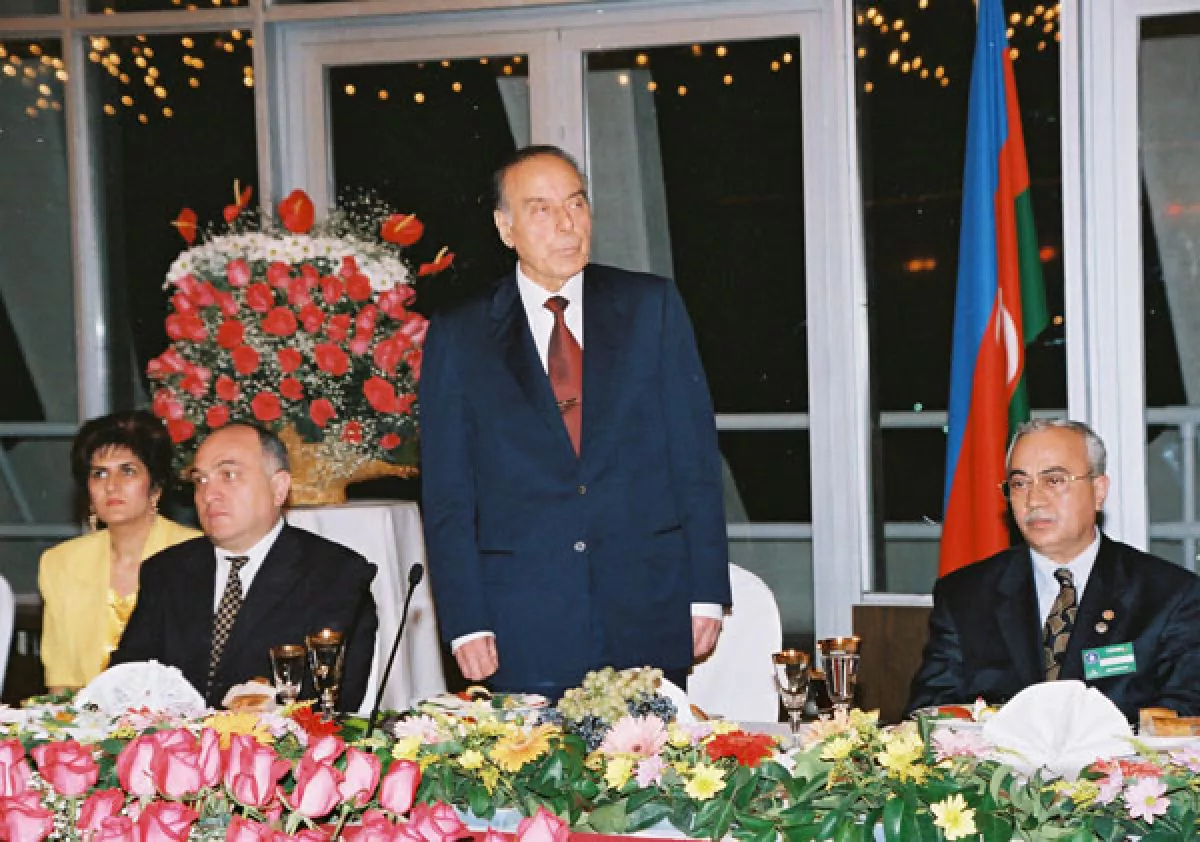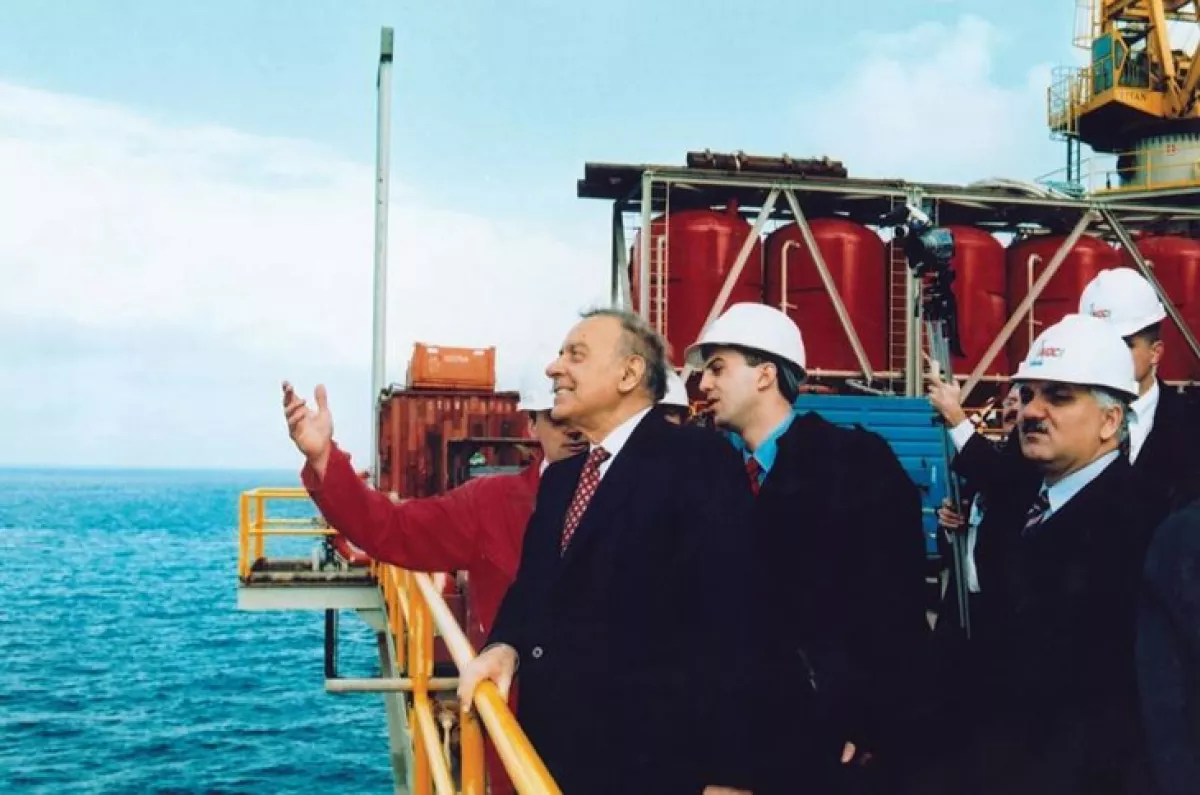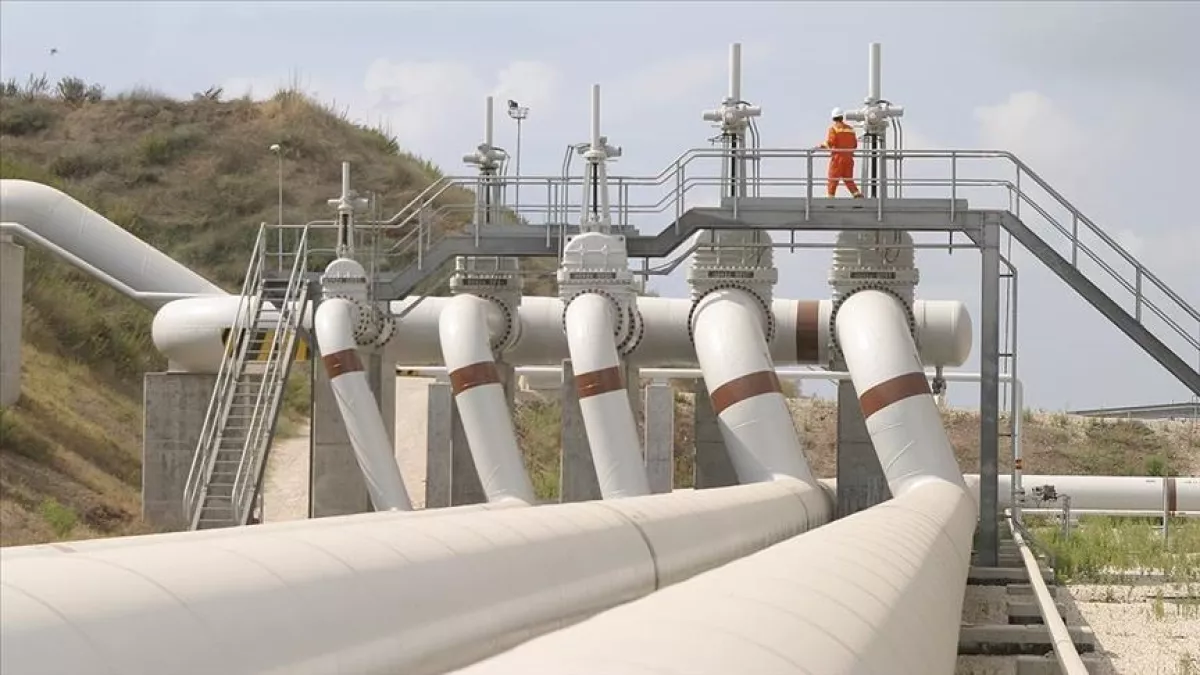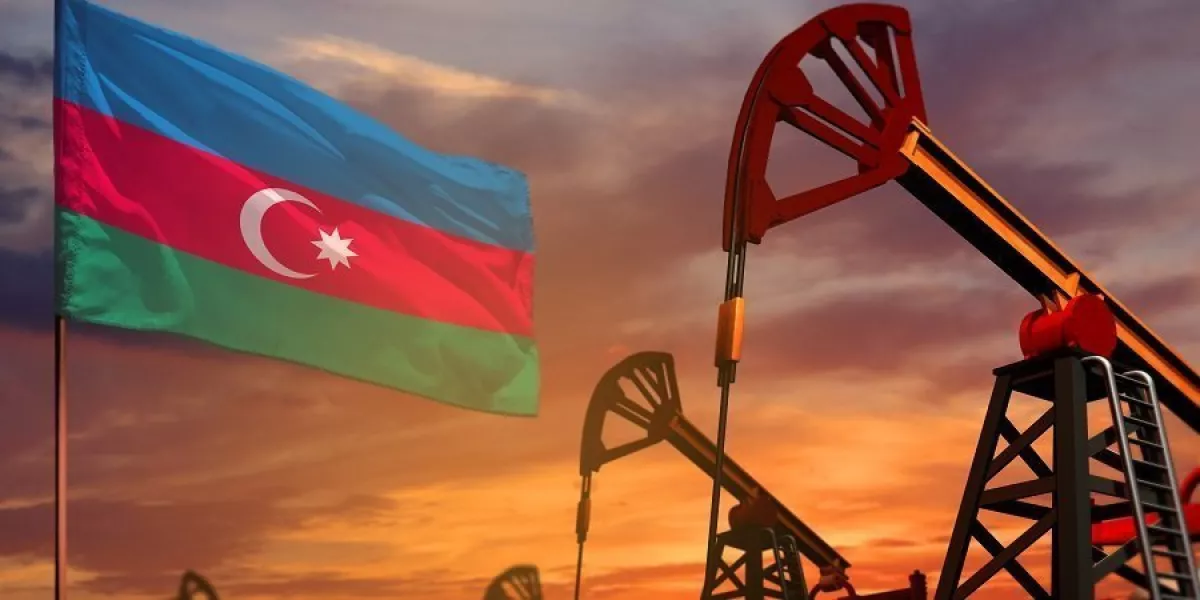Azerbaijan’s economic renaissance Celebrating 30 years of the Contract of the Century
Thirty years ago, the historic signing of the Contract of the Century marked the beginning of the development of the Azeri-Chirag-Gunashli (ACG) oil fields. This landmark agreement, crafted under the leadership of Azerbaijan’s national leader Heydar Aliyev, laid the foundation for the country's long-term oil strategy and shaped the future of its oil and gas sector.
The revenues from oil exports not only ensured macroeconomic stability but also boosted Azerbaijan’s foreign exchange reserves and set the stage for the growth of the non-oil sector. Today, it is encouraging to see that capital-intensive projects in the energy sector continue to thrive, a robust petrochemical industry is being developed, and efforts to enhance the efficiency of the extraction sector are ongoing.
It’s no coincidence that Azerbaijan celebrates Oil Workers' Day on September 20—the same day that, 30 years ago, the historic signing of the Contract of the Century took place for the development of offshore oil fields. The agreement was signed between the State Oil Company of Azerbaijan (SOCAR) and a consortium of 11 oil companies, mainly representing leading global powers such as the United Kingdom, the United States, Russia, Norway, Türkiye, and Saudi Arabia. To implement the contract, the Azerbaijan International Operating Company (AIOC) was established, and in the following years, additional agreements were made to develop several new fields. As a result, between 2000 and 2020 alone, approximately $110 billion in investments flowed into Azerbaijan's energy sector.

Since 1994, Azerbaijan has signed around 40 contracts with foreign companies for the development of oil and gas fields both offshore and onshore. Notable large-scale projects include the two-stage development of the Shah Deniz gas condensate field, the construction of the Baku-Tbilisi-Ceyhan oil pipeline, the South Caucasus Gas Pipeline, and the Southern Gas Corridor pipeline network, along with dozens of other energy projects that have already been implemented.
According to the recently published report, From Vision to Value: 30 Years of ACG, prepared by bp (the operator of AIOC), the cumulative investment in the development of the ACG block reached $45 billion by the end of the first half of 2024, while total oil production amounted to approximately 4.4 billion barrels, with over 4.3 billion barrels exported through the Baku-Tbilisi-Ceyhan (BTC) pipeline. Additionally, from the fall of 1997 to August 2024, more than 221 billion cubic meters of associated gas have been extracted from the ACG field.

The development of the ACG reserves is progressing successfully, and experts estimate that at least 500 million tons of untapped oil reserves remain at this field. The original Production Sharing Agreement (PSA) for ACG, initially set for 30 years, was renewed on September 14, 2017, extending the joint development of the field between the government of Azerbaijan and consortium partners until 2050. Notably, in 2019, under the second Contract of the Century, the fifth phase of the project was approved, focusing on the development of the Azeri Central East (ACE) segment of ACG, with a total project cost of $6 billion. Over the course of the project, more than 300 million barrels of oil are expected to be produced.
As part of the ACE segment development, work began last year on the installation of an automated platform, which can be remotely controlled from the Sangachal terminal. According to bp, the first oil from ACE was produced on April 16, 2024, with current production from one well reaching about 8,000 barrels per day. Two more production wells are planned to be drilled by the end of this year, which will increase output to 24,000 barrels per day. Additionally, the first gas from the deeper ACG reservoir is expected in 2025. Overall, around 336,000 barrels of oil are currently being produced daily from the ACG block, with most of this oil exported to global markets via the Baku-Tbilisi-Ceyhan (BTC) pipeline.

In the future, development at the ACG block will follow two main directions: alongside ongoing oil extraction efforts, significant attention will be devoted to natural gas (NAG) production, both from shallow waters and deep-lying reservoirs at ACG. The start of natural gas production from the deep-gas layers is expected in the first quarter of 2025, with estimated deep-gas reserves currently forecasted at around 300 billion cubic meters.
This year, bp launched the largest high-resolution 4D seismic survey program at ACG, valued at $370 million, and has already completed more than 70 per cent of the planned work in just two-thirds of the year. The seismic program is primarily focused on studying the Balakhany Suite and the Fasil Suite over an area of 740 square kilometers within ACG. Over the next five years, five monitoring surveys will be conducted to assess the condition of the reservoir, and these efforts are expected to significantly enhance oil recovery at ACG.
It is also worth noting that bp has been in constant consultation with the government of Azerbaijan and SOCAR regarding the efficient management of the ACG block through 2049. These discussions include addressing the challenge of declining oil production, extending reservoir lifespans, and maximizing extraction efficiency, leveraging both bp's technical capabilities as the operator and SOCAR's expertise.

Reflecting on the outcomes of thirty years of large-scale work on Azerbaijan's offshore fields, it is important to highlight that the Contract of the Century, signed three decades ago, was the first major investment agreement to attract the capital of Western multinational companies into the post-Soviet region. This visionary move allowed Azerbaijan to strengthen its geopolitical position over time, transforming the country into a key energy and transportation hub for the region. The project also boosted international investors' confidence in Azerbaijan, which gained a reputation as a favorable business environment and a secure "haven" for attracting multibillion-dollar investments.

The implementation of the Contract of the Century had a tremendous multiplier effect across various sectors of Azerbaijan's economy. Notably, it facilitated the transfer of technology and expertise to the energy and transportation sectors, while hundreds of local companies became suppliers of goods, service providers, and construction contractors for the oil and gas industry. The rapid growth of the oil and gas sector significantly improved the country's business infrastructure, enabling Azerbaijan to independently produce world-class offshore platforms of high complexity and quality.
The successful oil and gas strategy also contributed to the development of a modern petrochemical industry, with new facilities such as polymer and methanol plants, a urea fertilizer factory, and the modernization of the Heydar Aliyev Baku Oil Refinery. Most importantly, the projects realized under the Contract of the Century had a positive impact on the social sector, creating tens of thousands of new jobs in Azerbaijan, while simultaneously boosting workers' qualifications and introducing new professional skills in the oil and gas industry. Today, 90% of bp-Azerbaijan's professional staff are Azerbaijani citizens.
Notably, many highly skilled Azerbaijani professionals who were involved in AIOC projects now hold leadership positions in bp offices around the world, including in the UK, Iraq, Kuwait, Mauritania, Senegal, and several other countries.
In summary, it is safe to assert that the signing of the Contract of the Century marked the beginning of a new era for Azerbaijan’s economic revival and the strengthening of its state independence. These arguments led the national leader Heydar Aliyev to issue a decree on August 16, 2001, establishing Oil Workers' Day, which has since become one of the most significant professional holidays in the republic. Consequently, each year on this day, forums are held in Baku to discuss achievements and outline future goals in the oil and gas sector.








